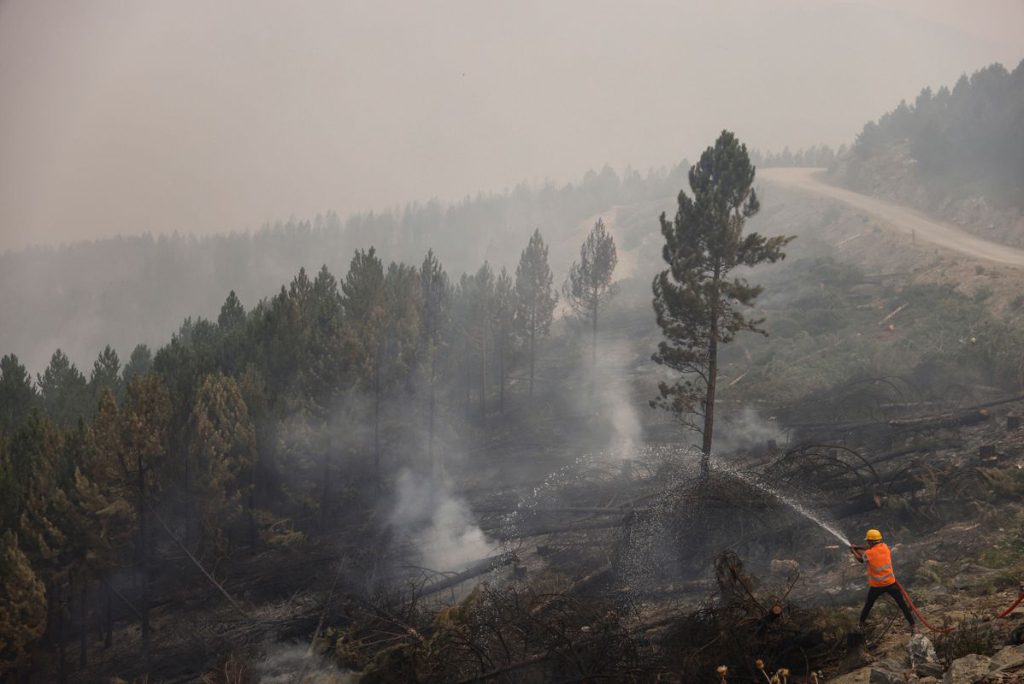Skift Take
The travel industry understandably doesn't want to hear it. But the climate emergency appears to be causing extreme, unpredictable events. Wildfires have prompted tourists to cancel 10 percent of their reservations in Bodrum and Marmaris, for instance.
The first cancellations from tourists booked onto one of Ozkan Selcuk’s cruises off Turkey’s southern coast came when the forests near where he takes visitors turtle-watching caught fire.
A year after the global COVID-19 pandemic devastated Turkey’s tourism industry, the worst wildfires in living memory along its southern coast have delivered a fresh blow to the sector which makes up some 5% of the Turkish economy.
In ten days, the fires have destroyed tens of thousands of hectares of forest in Mediterranean and Aegean provinces, eight people died and thousands of Turks and tourists have fled. In the province of Mugla, where major tourist resorts Marmaris and Bodrum are located, at least 36,000 people have had to be evacuated, including from some coastal resort towns.
The relaxation of COVID-19 travel restrictions this summer had led to hope of a rebound in Turkey’s tourism industry, but for Selcuk and others in his region, the wildfires put paid to that.
“I have two more bookings for Saturday but I’m not getting any new bookings,” said Selcuk. “I am scared that the fire will continue. We wake up to ashes falling on our houses and on our boats.”
Firefighters have contained most of the around 200 wildfires that broke out in the last ten days, but on Friday there were still some 12 blazes burning on the Mediterranean and Aegean coasts, according to official data.
“There are no new bookings due to wildfires. Existing bookings are being canceled. The hotels are also empty, with early check-outs,” Bulent Bulbuloglu, head of the Southern Aegean Hoteliers Union said.
Britain’s decision on Wednesday to keep Turkey on a COVID-19 ‘red list’ for another three weeks is a further blow to the industry.
Tourism Minister Nuri Ersoy said on Friday Turkey was sticking to its targets of 25 million visitors this year and $20 billion tourism revenue – still far short of the $34.5 billion in pre-pandemic 2019.
“We had the expectation that the British visitors would come back, but that is not happening,” Bulbuloglu said.
Most tourists who visit Turkey are British, followed by Russians and Germans. In 2019 more than 2.5 million visitors came from Britain, according to official data.
In 2021, foreign arrivals were 5.7 million in the first half of the year while revenues stood at $5.5 billion, official data shows.
Former tourism minister Bahattin Yucel said the government forecasts were not realistic. “On top of the outbreak now there are wildfires…it will take a long time for the southern Aegean coast to recover,” he said.
Gonca Umul, whose family run a guesthouse in the coastal town of Oren, had hoped that a packed July would jumpstart a recovery from last year’s slump, but her small hotel is now empty after many residents were evacuated.
“We were fully booked for July and even turned down guests. Now people are only calling to cancel their bookings,” Umul said.
(Writing by Ezgi Erkoyun; Editing by Dominic Evans and Raissa Kasolowsky)
Copyright (2021) Thomson Reuters. Click for restrictions
This article was written by Ceyda Caglayan and Ezgi Erkoyun from Reuters and was legally licensed through the Industry Dive publisher network. Please direct all licensing questions to [email protected].
![]()
The Daily Newsletter
Our daily coverage of the global travel industry. Written by editors and analysts from across Skift’s brands.
Have a confidential tip for Skift? Get in touch
Tags: climate change, coronavirus recovery, turkey, turkish airlines, wildfires
Photo credit: A volunteer from a nearby village sprays water to cool down a recently burnt part of a forest during a wildfire near Kavaklidere a town in Mugla province, Turkey, August 5, 2021. Umit Bektas / Reuters
